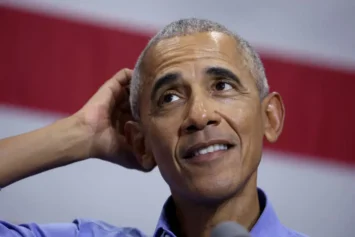A tightening of the evaluation criteria of the federal PLUS loan program has left thousands of students unable to afford college this year — a phenomenon that has hit historically black institutions especially hard.
The U.S. Department of Education quietly changed the popular loan program to make its criteria align more closely with industry standards to decrease default rates.
The change in the approval criteria was instituted in October 2011. Instead of looking at whether an applicant had an adverse credit history for an account over the past 90 days, the program now reviews delinquent accounts over the last five years — including foreclosures, bankruptcies, wage garnishments, repossessions and tax liens and past-due payments on bills such as utilities.
According to the National Association for Equal Opportunity in Higher Education, which represents predominantly black colleges, more than 14,000 students at historically black colleges and universities were denied PLUS loans last fall.
The result was devastating to many already financially challenged HBCUs, causing budget gaps as matriculating students discovered they wouldn’t be able to enroll without the PLUS loans.
Mark Kantrowitz, a leading financial aid expert and the publisher of FinAid.org, conducted estimates for the Chronicle of Higher Education and The Associated Press. He found that the tougher new standards led to double the rejection rate at all schools. Kantrowitz says there were 790,600 PLUS loans for students in 2007-2008, with the average student receiving about $10,000. Of those, 30,300, about 4 percent, were for students enrolled at an HBCU.
“If they wanted to tighten eligibility for the PLUS loan, this isn’t the best way… Whether someone had a delinquency five years ago has no bearing on whether they’re going to default on the loan now,” Kantrowitz told AP.
Ariadne Partlow, a Spelman College student who unexpectedly had her PLUS loan rejected last year, is currently working at a fast-food Chinese restaurant instead of studying biology at Spelman and moving toward her dream of attending medical school.
“All I’ve known is school, so this is weird not being in school all the time,” Partlow, who would’ve been a junior this year, told AP.
According to one estimate, as many as a third of all black college graduates had used PLUS loans, a proportion twice as high as the rate for all schools.
But not everyone is bothered by the higher rejection rate.
“There are parents getting these loans that really shouldn’t be getting these loans. They just don’t have the money,” said Rachel Fishman, an education policy analyst for the nonpartisan New America Foundation think tank in Washington.
Triton Brown, a Milwaukee native who is a freshman at Xavier University of Louisiana, said because his mother’s PLUS loan application was rejected, he now has to work up to 35 hours a week as a busboy and at another on-campus office job to pay his tuition — all while taking a full-course load.
“Some days I might even miss a few meals or something like that just simply because I either got to go work or I have got to study for class or something. But I figure it’ll all be worth it in the long term,” he said. “I have the drive. I just won’t quit until I do make it to be successful.”
Clark Atlanta University President Carlton Brown said 500 students were not able to enroll there last fall because their parents were denied PLUS loans, causing an $8 million budget hole.
“It was a crisis situation for all of us,” said William R. Harvey, president of Hampton University.
Harvey, who serves on President Obama’s advisory board on historically black colleges, helped spearhead meetings with Education Secretary Arne Duncan last fall to address the problem.
As a result, the Department of Education agreed to let students who were previously enrolled with the help of a PLUS loan appeal the decision and qualify for it again if the denial was caused by the new criteria, according to department spokesman Daren Briscoe.
So colleges had to scramble to inform students and their families to apply again. Howard University had nearly 600 PLUS loans approved after students appealed, according to the AP. But that doesn’t help the incoming freshman and future students who will be denied because of the new rules.


